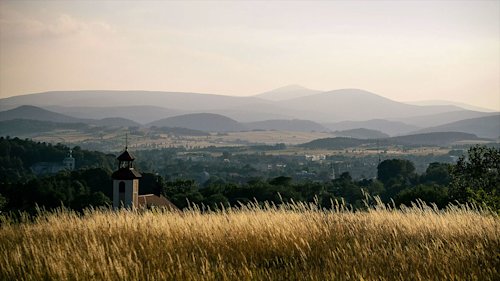Last updated: May 22, 2025
The environment is rarely out of the news these days. Surveys show that, in the UK, two thirds of the population say they are worried about climate change and its effects. For many people, this concern stretches to their funeral and making them consider how to make their funeral plans as environmentally friendly as possible.
Burial vs cremation
The carbon footprint of a funeral is likely not the primary concern when choosing between burial and cremation. Cremation has been the most popular funeral choice for the people of Britain for more than 50 years. However, environmental concerns may be prompting some people to reconsider burial as a more eco-friendly option. The fuel required for a cremation is reported to be equivalent to a 500-mile car journey. Also, the metals and elements present in many of our bodies - mercury in tooth fillings or metal in joint replacements - can further increase the impact a cremation will have on the environment.
That doesn’t mean burials don’t have an environmental impact. Toxins in embalming materials can pose a serious risk to water supplies if the deceased is not buried in a suitable site. Many coffins are also far from biodegradable.
More broadly, burial has an impact on land usage. Shortages of land for general use has put pressure on the amount of land that can be spared for burials. Considering all of these factors together, it is difficult to compare the long-term environmental impact of traditional burials and cremations.
Woodland burial
There are, however, more eco-friendly options that can reduce the environmental impact of a burial, if you wish to choose to be buried instead of cremated. Woodland burials are becoming a popular alternative for people that want a more environmentally friendly funeral. These take place in designated woodland areas known as natural burial grounds as opposed to a traditional cemetery.
The key benefits of a woodland burial over a standard burial or cremation are
- They generally do not involve embalming
- There is no fuel required, beyond travel
- Coffins are made from natural, biodegradable materials
- The site is preserved as a nature reserve
There are almost 300 woodland burial sites in the UK. According to The National Society of Allied and Independent Funeral Directors the majority of funeral directors have access to a woodland burial site.
Woodland burial plots are typically unmarked or marked with a natural alternative to a typical headstone, such as a tree or flowers that will, with time, blend in with the surrounding woodland. It may be difficult to find individual burial locations on woodland sites, however, many people come to see the entire wood as a memorial to their loved one.
Tree pod burials
With tree pod burials, people are placed in the foetal position inside a biodegradable egg-shaped pod. The pod is then buried with a tree planted over it to create a natural, living memorial.
Tree pod burials are not available in the UK at the moment, but once the process receives regulatory approval it is expected that the practice will be of great interest to anyone looking for a more environmentally friendly burial. Although body pods are not yet available, smaller urn-like pods are available. Ashes are placed inside these biodegradable pods and they are buried under a tree that will grow to mark the site.
Promoting tree pod burial, the Capsula Mundi project says that, as more people opt for tree pod burials: “Cemeteries will acquire a new look, growing into vibrant woodlands and sacred forests.”
Coffin options
When it comes to choosing a coffin, there are some more environmentally friendly options to consider. More environmentally friendly coffins are specially designed coffins from a biodegradable material such as recycled paper, bamboo, willow, wicker or seagrass. They don’t contain fitting, screws or nails that will break down over time.
Water cremation
The newest and one of the most environmentally friendly options for a funeral is water cremation, a trend which has really taken off in the USA and Canada. Currently being piloted at selected places around the UK, water cremation, also known as resomation, is where flesh is broken down using a liquid solution made from potassium hydroxide before the remaining bones are broken down. Composting
Another option in the future of environmentally friendly funerals is human composting. Although it may sound strange, human composting has been introduced in the United States.
The principle is simple, involving accelerated composting of human remains that will present loved ones with an urn of soil rather than an urn full of ash once the process is complete. The process is natural and, in a matter of weeks, can turn a body into fertile and usable soil.
Golden Charter has one of the largest network of independent funeral directors in the UK







